I've been attempting to code a Bi-Cubic resize algorithm for in-memory bitmaps. I'm familiar with how bi-cubic interpolation works, and I've used both the Wikipedia article and existing implementations as a guide towards coding my own version.
The following is my simple implementation. Here, bmap is a vector containing the bitmap data, and get_subpixel is simply a function that treats the bitmap as a 3D array composed of X x Y x Channel pixels, and returns a single sub-pixel at the specified coordinates.
std::vector<unsigned char> bicubic_resize(
std::vector<unsigned char>& bmap, std::size_t bmap_width, std::size_t bmap_height,
std::size_t channels, std::size_t dest_width, std::size_t dest_height)
{
std::vector<unsigned char> out(dest_width * dest_height * 3);
const double tx = double(bmap_width) / dest_width;
const double ty = double(bmap_height) / dest_height;
const std::size_t row_stride = dest_width * channels;
unsigned char C[5] = { 0 };
for (unsigned i = 0; i < dest_height; ++i)
{
for (unsigned j = 0; j < dest_width; ++j)
{
const int x = int(tx * j);
const int y = int(ty * i);
const double dx = tx * j - x;
const double dy = ty * i - y;
for (int k = 0; k < 3; ++k)
{
for (int jj = 0; jj < 4; ++jj)
{
const int idx = y - 1 + jj;
unsigned char a0 = get_subpixel(bmap, idx, x, k);
unsigned char d0 = get_subpixel(bmap, idx, x - 1, k) - a0;
unsigned char d2 = get_subpixel(bmap, idx, x + 1, k) - a0;
unsigned char d3 = get_subpixel(bmap, idx, x + 2, k) - a0;
unsigned char a1 = -1.0 / 3 * d0 + d2 - 1.0 / 6 * d3;
unsigned char a2 = 1.0 / 2 * d0 + 1.0 / 2 * d2;
unsigned char a3 = -1.0 / 6 * d0 - 1.0 / 2 * d2 + 1.0 / 6 * d3;
C[jj] = a0 + a1 * dx + a2 * dx * dx + a3 * dx * dx * dx;
d0 = C[0] - C[1];
d2 = C[2] - C[1];
d3 = C[3] - C[1];
a0 = C[1];
a1 = -1.0 / 3 * d0 + d2 -1.0 / 6 * d3;
a2 = 1.0 / 2 * d0 + 1.0 / 2 * d2;
a3 = -1.0 / 6 * d0 - 1.0 / 2 * d2 + 1.0 / 6 * d3;
out[i * row_stride + j * channels + k] = a0 + a1 * dy + a2 * dy * dy + a3 * dy * dy * dy;
}
}
}
}
return out;
}
This code works perfectly for certain destination sizes. For example, if the original bitmap is 500 X 366, and the destination size is 250 x 183, the algorithm works perfectly:
Original:

Resized:

However, for certain other destination sizes, such as 100 x 73, the destination image is distorted:

I've been going over the interpolation code, and I can't see what I'm doing incorrectly.
I'd appreciate any hints, suggestions, or answers.